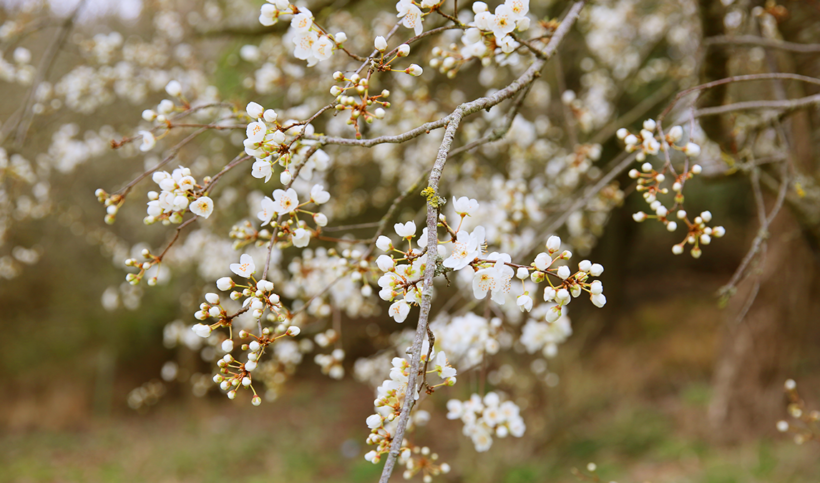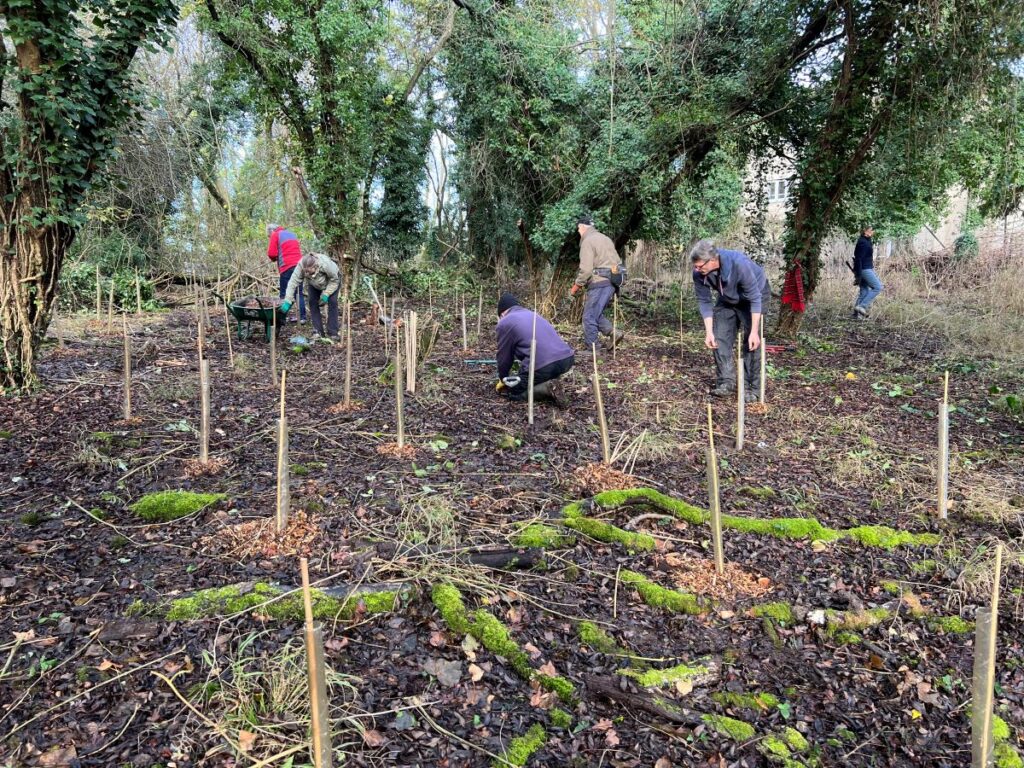Spring’s reward
Monday 20th March 2023

Winter is a relatively calm period of the year when, apart from cleaning muddy boots and trying to keep warm, there isn’t too much that needs doing urgently. That’s not to say that I’m not busy, but that the outdoor environment doesn’t change on a daily basis! This past year has been particularly unusual with the dry and warm conditions we’ve experienced and it will be interesting to see what the rest of the year has in store for us. Are such conditions ‘weather extremes’ or do we need to accept that this is to become the new norm?
A change of pace
Spring is when the pace changes and it all starts to happen, of course not necessarily on the morning of the 1st of March, when it is inscribed in meteorological calendars, nor at the start of astronomical spring on the 20th of March. Ecologically we have a fuzzier springtime definition as days get longer and the temperatures generally get milder. With the mercury hitting the high teens last month, flowers are already blooming, animals are becoming more active and new growth is evident everywhere.
A reward for hard work and patience
I see this spring period as the reward for last year’s hard work. It is the opportunity to see which of those seeds, bulbs and saplings survived the drought and subsequent deluges in the autumn and early winter. What will appear in the space left by some of the scrub that was cleared or emerge out of that carefully created habitat pile?
Managing a natural environment is a process of resetting the balance and takes patience. To maintain a woodland, grassland or pond, we are essentially constantly fighting a process of ecological succession to prevent these habitats from initially becoming overgrown and impenetrable, and eventually becoming different habitats entirely. One thing you quickly learn when working outdoors is that you cannot rush things, but I find that only makes the successes all the more rewarding.
Volunteer with us
A lot of the hard work involves a team of volunteers who descend every month to help keep on top of the many varied tasks that need doing. If you would be interested in getting your hand dirty alongside some like-minded souls then get in touch and join us on a Monday sometime soon.

Understanding seasonal changes in living things
Phenology is the study of seasonal changes in living things and is something that fascinates me. I try to keep track of the first call of the cuckoo, flash of the yellow Brimstone butterfly or leaves emerging on our trees here at Stansfeld Park. However, I have some way to go to rival Jean Combes, who was recently awarded an OBE for her records of oak tree bud burst over a 70-year period. Her work showed a trend for the timing of leaf emergence to happen as much as two weeks earlier than it did when she began (read here). You can record these natural events yourself with the help of the Woodland Trust’s calendar, which will tell you what to look out for each month.
A club for young nature lovers
Are there any young nature fans in your family? Science Oxford has a new Nature Club, starting on 25th of March with a ‘Wild Trackers workshop’. Young adventurers can explore the woodland to investigate wildlife and learn how to track animals, identifying who’s-who from clues left behind, while learning more about habitats. Back in the workshop, they will looking at and learning more about what they’ve found. Join the club here.





